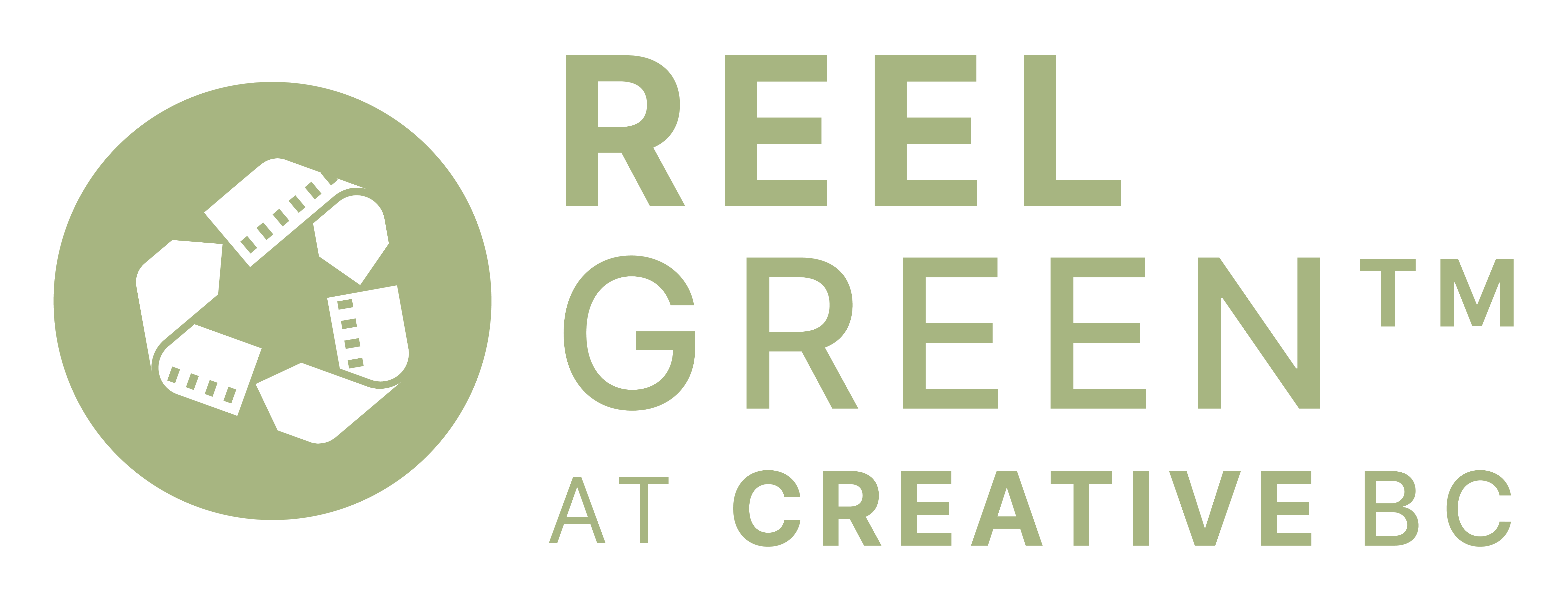The fourth annual REEL Earth Day Challenge has raised $100,000 toward projects delivered through Metro Vancouver Regional Parks Foundation. Since 2021, the annual BC film industry fundraiser for parks and greenspaces has raised over $473,000. “Creative BC's Reel...
Related News
Reel Green™ Vendor Spotlight: Driving Force
Driving Force, a Reel Green™ Advisory Partner and eco-friendly vendor is driving sustainability within the film industry! Across Canada, Driving Force is known for solving problems, keeping promises, and helping communities. Their sustainable role in the Vancouver...
REEL Earth Day Challenge – Fall 2023 Report
The 2023 #REELEarthDayChallenge brought together film crews, productions, sponsors and industry stakeholders to raise funds towards projects for Metro Vancouver Regional Parks. This year the BC film industry raised $100,000 towards 9 projects. These projects are led...
Reel Green™ Circular Economy Toolkit is Now Live!
A circular economy is one that minimizes waste and makes the most of available resources. In contrast to the traditional linear economy, which follows a "take, make, dispose" model, a circular economy aims to keep products, materials, and resources in use for as long...
Reel Green General Meeting May 15 Re-Cap
Reel Green hosted a General Meeting on May 15th, 2018 where 19 members of the motion picture industry strategized on how to reduce our collective environmental impacts.
This meeting featured special guests Ian Neville, Climate Policy Analyst, Manager of the EV Ecosystem Strategy, the City of Vancouver and Sandi Swanigan, Senior Manager, Film and Special Events, City of Vancouver.
Neville started off the meeting by speaking about plans for the City of Vancouver’s EV (electric vehicle) infrastructure. This includes a wide range of strategies from the City such as switching to focus DC Fast Charging stations, creating a Public Charging Network map to help with accessibility and mandating that all new condo parkades are built with charging stations.
Neville and the group progressed to a film-focused discussion on how EV Charging Stations could impact filming motion picture in Vancouver. Keith Woods, IATSE 891 Lighting who has worked as the head gaffer for large blockbuster films, indicated that projects he has worked on would require at least 400 amps. This means that one set would require access to at least 2 DC Fast Charges in order to supply enough power.
Sandy Swanigan engaged in the conversation to inquire about where EV station placements would be most effective for the film industry vs. standard public use. She indicated that the City of Vancouver is curating a structured working group to focus in on this topic with industry members in June 2018. Reel Green will be updated with the details of this group and their work later in the summer.
Hans Dayal, Directors Guild of Canada Location Manager, brought up that creative solutions will be required as more lots, such as the Tapestry lot in downtown Vancouver, will become inaccessible. It’s also important to note, with Woods in agreement, that the distance between the circus and the set are becoming father and father away making power accessibility more and more challenging. “Accessibility Mats” to run cables across a street could be a solution, but not without some shortfalls as they cannot be used across bike lanes and set up is difficult, requiring engineering for each use.

From here the conversation segued into idling and fuel consumption where David Halliday, Transport Coordinator/The Flash, and Clara George, Producer, are trying to enforce no idling through use of mandatory dash cards/signs. The group agreed that establishing “No Idling” is a priority for the industry and that reminding transportation department to use the “Eco Mode” option, if available, on a production vehicle. The “Eco Mode” option automatically shuts off the car when not in use making some eco mode cars are more efficient than hybrids.
Overall the group came away with some action items and key points:
-
Commit to training staff and crew on use of “Eco Mode” on all vehicles where it is available to reduce idling during production.
-
The City of Vancouver to gather resources to provide a heat map for strategizing charging station locations and to consider film locations/power drop placement with city plans as they develop. The City of Vancouver is encouraged to consult with electricians to develop a strategy to support areas that can be electrified.

Stay Connected
Subscribe to our newsletter

